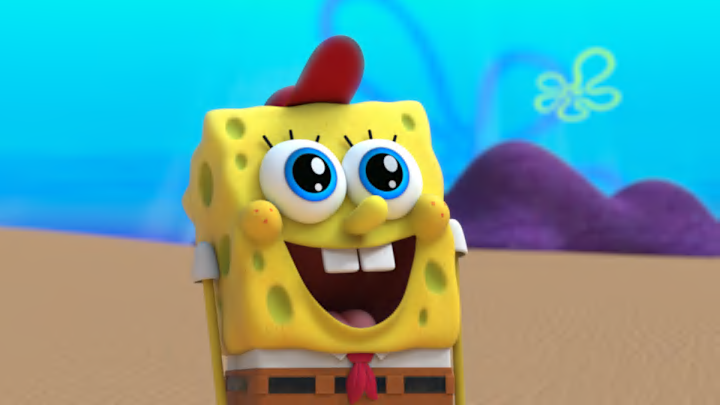SpongeBob SquarePants, the effervescent yellow sponge of the popular Nickelodeon children's animation, has recently been confirmed to be autistic by his voice actor, Tom Kenny. Kenny revealed the "diagnosis" at a panel at Motor City Comic Con in May, which has recently resurfaced. At the event, Kenny was asked this by a fan on the spectrum, to which he responded: "Yes! Of course [SpongeBob SquarePants] is! That's his superpower, [in] the way your superpower is."
These words have left a positive trail; SpongeBob identifies with the autism community as he shares similar social traits and envisions the world without a negative premonition. In other words, SpongeBob lives in his own bubble but enjoys the company of others despite their opinion of him, and sometimes he can't seem to pick up on certain social situations. For example, he absorbs Mr. Krabs' criticism as praise or thinks Squidward's sarcasm is encouraging and not insulting.
While having SpongeBob as an advocate for disability representation is a step in the right direction in the media, Kenny admitted that SpongeBob's autism was never meant to go public.
As part of Entertainment Weekly's SDCC 2024 coverage and the celebration of SpongeBob's 25th anniversary, Kenny disclosed that the autism confirmation was never "meant to go public" nor was he a medical expert surrounding autism and its variations.
"I'm not a medical doctor, and SpongeBob is imaginary, an imaginary character, so I'm not really qualified to speak," Kenny opened to the outlet. "But yeah, a young person with autism who is on the spectrum said to me, [well] basically he was asking me, 'I'm like this, is SpongeBob like me?' And I said, 'Yeah, he is. SpongeBob's a lot like you. You guys are the same, and you're both awesome.'"
Kenny elaborated further on how the interaction between him and the fan was a private conversation but he's glad that it went viral, as maybe SpongeBob's representation could help others in the long run.
"That was a nice moment, and I never meant for it to go public or anything. It was just [a] private moment that I had with a fan, but it seems like it's been empowering and helpful to people out there."Tom Kenny

SpongeBob SquarePants' autism could have a positive impact
Representation is imperative in media, as fans want to feel connected to the characters and their stories in hopes that they'll feel invincible or, at least, valued and that they're not alone in their struggles. Over the years, disability representation has grown tremendously in media. However, it must be authentic; we don't want to see the "oh, pity me" trope or have characters with disabilities be the non-disabled characters' "good deed tokens."
Not only does this sort of media writing hurt the show or film, but it's toxic to the audience, as several of us in the disability community feel like we're unwanted tools to the story rather than being respected as human beings.
SpongeBob uses his unique and cheerful persona to bring livelihood wherever he goes, and being autistic doesn't allow him to ostracize himself. He's shown as a hard worker, one who is meticulous and sees the joy in everything, but he's also respected (pretty much) in his community. Adults and kids with autism and its disorders hold a familiar bond with the character, and it's a positive since SpongeBob is positive. In the episodes I have watched, he never said a bad word about anyone; realistically, that's hard to do.
Regardless of the fact that SpongeBob SquarePants is a cartoon, it's a prime example of how it could transform the disability representation landscape into creating more inclusion in media productions or just in everyday life. For kids, especially, seeing their reflection in a character resembling their personality will provide confidence while they take on the world in their own light.
